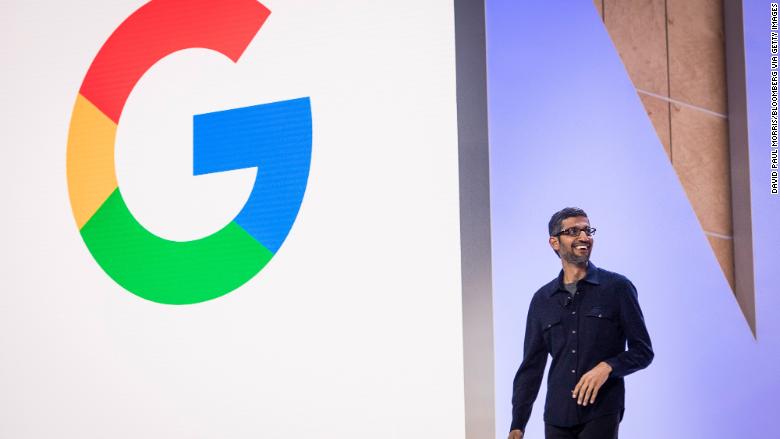
Google CEO Sundar Pichai has sought to reassure employees who are worried the company might compromise its values to get into China.
Pichai, at a town hall meeting on Thursday, said he's not rushing to launch a search product for China. The meeting was the first such event since media reports detailed Google's efforts to build a censored app for the country.
"We are not close to launching a search product in China," Pichai said, according to a source with knowledge of the conversation.
"And whether we would do so, or could do so is all very unclear," he said. "But the team has been in an exploration stage for quite a while now and I think they are exploring many options."
The discussion was part of a regular meeting that is open to all employees.
Reports surfaced earlier this month that Google (GOOGL) was working on a search engine for China that would block sensitive websites and search terms to comply with Chinese government censorship.
The New York Times reported Thursday that around 1,400 employees have signed a letter questioning the plan and calling for more transparency.
"To make ethical choices, Googlers need to know what we're building. Right now we don't," reads a copy of the letter posted on the website of The Times.
Google declined to confirm the authenticity of the letter, or comment on the town hall meeting.
China has hundreds of millions of internet users and a thriving online shopping market, making it impossible for US tech companies to ignore. But jumping back into China presents ethical issues for Google, which has long advocated a free and open internet.
Related: Google might return to China. Here's why that's so controversial

Popular Google services including search, YouTube and Gmail have been banned in China for years.
Google stopped offering search in China in 2010 following a political dispute between Beijing and Washington over hacking.
Prior to 2010, the company had operated a Chinese language version of its search engine. It complied with China's censorship rules, but alerted users to the fact that some search results were missing.
-- Kristie Lu Stout contributed to this article.

